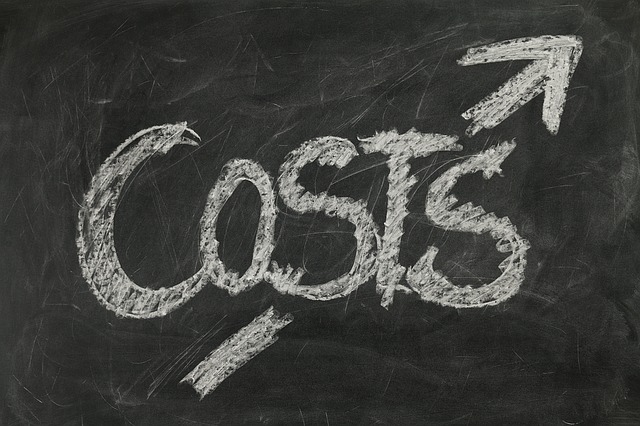COVID-19 Money-Management Tips: What to Do with an Inheritance
Losing a loved one is a painful process. Often, people struggle with deciding what to do with the money their loved ones leave behind. For many, that process has only become more stressful as the COVID-19 pandemic continues to impact inheritance proceedings due to court closures.
There are endless options for what to do with a loved one's parting gift. To help ease the burden of such an important decision, we've provided some tips for how to most effectively use your assets, depending on the circumstances of your inheritance.
1. Build Up an Emergency Fund

Emergency funds have never been more critical than now, amid a global pandemic with no end in sight. In times like these, there is no replacement for an emergency fund. Stimulus checks can only hold you over for so long. Should an unexpected expense arise after that money has run out, you're going to need to pull from your emergency cash reserve.
Those without an emergency fund may need to turn to a fast payday loan to cover these types of expenses.
Whenever you withdraw cash from the fund, make sure you replenish that same amount of money before doing anything else.
The general rule of thumb for emergency funds is to stash away one to three months' worth of living expenses. Include essentials such as rent, groceries, utilities, childcare, petcare, etc. The amount of money you want to have in the fund is up to you.
The amount you should allocate to your emergency fund is not one-size-fits-all but should instead be based on what you can realistically afford to spare and how comfortable you are with your current financial situation. Even if it's only a small deposit each month, a little money in times of emergency is better than no money at all.
Above all else, creating an emergency fund (or growing an existing one) is the smartest thing you can do with an inheritance and should be the first step in your financial plan.
2. Pay Off Any Debt

Besides building an emergency fund, paying off debts should be your utmost priority. Pay off debts with the highest interest rates first to spare yourself from a cycle of long-term debt. Until your debts are cleared, hold off on luxury purchases. If you took out an inheritance advance, be sure to pay this off as soon as possible to avoid any late fees or accruing interest.
3. Max Out Your 401(k)
Most people underestimate how much money they'll need to retire comfortably. A 401(k) is a retirement savings account sometimes sponsored by an employer. If you're employed and you've achieved the last two financial goals, continue investing in your retirement next. Anyone can open a 401(k), but they are most worthwhile if your employer matches employee contributions. People under the age of 50 can contribute up to $19,500 a year. Once you reach 50, your 401(k) maxes out annually at $26,000.
Investing in a 401(k) is a wise financial move, not only because your employer may match your contributions but also because saving money in a 401(k) does not count towards your annual income and thus reduces your taxable income. Any monetary growth in a 401(k) is also not taxable. Investing in a 401(k) is, therefore, a substantial advantage for those within a high-income bracket to protect more of their income from incurring taxes. Keep in mind that any money you contribute towards a 401(k) cannot be withdrawn before you turn 59 without penalty.
If you aren't in a position to max out your 401(k), it's generally wise to contribute to your 401(k) until you have at least approximately 15% of your pre-tax income saved.
4. Open an IRA

Individual Retirement Accounts, or IRAs, are a tax-savvy way to build up your savings. There are two main types of IRAs, each with its own tax benefits.
Traditional IRA: Allows you to deposit pre-tax money that grows tax-deferred until it is withdrawn. Upon withdrawal, the money is taxed at the individual's current income test. Most people, when they retire, enter a lower income bracket, meaning they may be taxed at a rate lower than when they deposited the money. The contribution limits are as follows: $6,000 under age 50; $7,000 age 50 or older. Required minimum distributions begin at age 72.
Roth IRA: Deposits are not tax-deductible, but some distributions are tax-free. You can only contribute after-tax income to a Roth IRA, but you will not pay taxes on any growth. Withdrawing money before the age of 59 will result in a 10% early withdrawal penalty. The contribution limits for a Roth IRA are the same as for a Traditional IRA unless you are 50 or older and qualify for a program that raises the limit to $7,000.
Vanguard, Schwab, and Fidelity all offer great benefits to Roth IRA owners. Their Roths are low cost and come with great mutual fund investment options.
Note that married couples filing jointly who earn above $206,000 and singles and heads of households who earn above $139,000 are not eligible to open a Roth IRA.
Other Types of Savings Accounts

If you've done all of this or skipped a step and want to look into different options for investing your inheritance, the good news is that there are many other types of savings accounts available.
Certificate of Deposit (CD) Account: A low-risk account with high-interest growth rates.
CD Account holders must deposit money into the account for a fixed duration. In exchange, the bank will pay relatively high-interest rates. When the duration of your CD agreement has expired, you will receive the money deposited along with any interest accrued.
The main benefit of CDs is that these accounts allow you to increase your savings faster than you may be able to with other accounts. However, there are penalties for early withdrawal before the term is up, so it is essential that you have a cash reserve such as an emergency fund or other savings account you can easily access should you need immediate funds.
Utilities Mutual Fund: These accounts invest money deposited into public utility services such as gas, water, and electric providers. Most Utilities Mutual Funds invest at least 80% of deposits into the utility industry or related industries. Fidelity and Wells Fargo are two trusted Utilities Mutual Fund issuers.
Exchange Traded Fund (ETF): A bundle that trades on an exchange, similar to stocks. Their value fluctuates throughout a day or multiple days. Unlike mutual funds, ETFs can be traded multiple times in one day. They lower brokerage fees and commissions than individual stocks.
Why You Shouldn't Invest in Personal Stocks
Of course, with this list of things to do, comes a list of things not to do. COVID has caused a massive market crash, meaning that anyone investing large sums of money could potentially have a lot to lose. Investing in personal stocks is incredibly risky as the market currently stands and is the one thing I would recommend you not do with an inheritance. If you're set on investing, it may be best to focus on fixed costs instead and wait until the market is more stable before investing.
Conclusion
Of course, this list does not exhaust the options you have when deciding where to allocate your money. How you ultimately decide to spend your money should be based on what you can comfortably afford and what makes you feel secure. You can follow all the steps on this list in order, or you can skip around according to your unique financial goals.
For example, perhaps you flesh out an emergency fund, invest a small amount in your 401(k), and opt to forgo an IRA all together to place a down payment on the house you've been eyeing for months.
Remember that there is no rush to invest any of your money after you've established an emergency fund and paid your debts. You have time to learn while your inheritance sits in a High Yield Savings Account (or HYSA). It may be a good idea to set a timeframe, for example, five years, at the end of which you will have started making arrangements for your assets.
If you don't know where to start, it may be worth speaking to a financial advisor. What you do with your money should reflect your personal values and goals. For example, perhaps you'd like to retire early rather than achieve more short-term goals like planning your dream vacation. In the end, you should do what will be most worthwhile to you.





